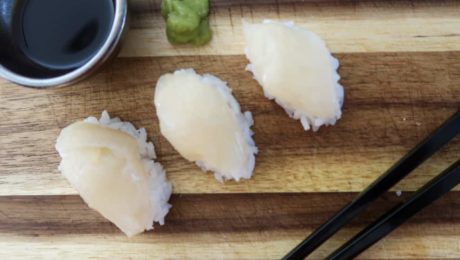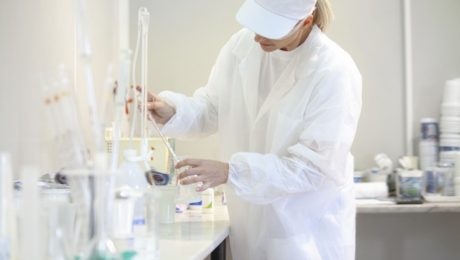The Forefront of Alt-Proteins in Africa
Price and regulation are big roadblocks for alternative proteins, an industry that is expanding rapidly, as more consumers turn to animal-free products out of concern for their health, the environment and animal welfare.
“People love meat but, at the end of the day, they’re not really attached to how it got to their plates,” says Brett Thompson, co-founder and CEO of Mzansi Meat, a cultivated meat company in South Africa. Thompson spoke at the TFA webinar The Forefront of Alt-Proteins in Africa with another leader in the South African alternative protein industry, Leah Bessa, PhD, co-founder and CSO of De Novo Dairy.
Alt-protein companies all over the world are bringing cultivated meat and dairy to consumers, but Africa as a continent has lagged.. Thompson founded Mzansi Meat Co. in 2020 and hopes to bring cell-cultured beef, chicken and braai sausages (traditional South African BBQ-style sausages) to retail shelves next year. De Novo Dairy, formed in 2021, is using precision fermentation to create milk proteins for animal-free dairy products, but without cows.
This novel biotechnology is new in South Africa, but it’s a critical element in addressing food security problems in Africa. Africans don’t consume enough food, especially protein, and as drought continues to plague the continent, raising animals for traditional meat products is becoming less and less sustainable.
“It’s a very different conversation to the rest of the world,” Thompson adds. “It’s about getting more protein into more people’s stomachs and plates.”
Big Production Costs in New Alt-Protein Space
Interest is high from investors, but scaling from pilot stage to large-scale production is challenging. Equipment is costly and labor is difficult to recruit to a new industry.
In a survey conducted by Mzansi, 50% of South Africans were willing to purchase alternative protein products — and they’d pay a higher price than for traditional meat.
“But we just got to make it available,” Thompson says. “That’s going to be the biggest hurdle for us, getting it into retail and getting it in front of people so that they can make that decision.”
Bessa says that, critical to the adoption of animal-free dairy, the consumer must receive “nature identical” products. These must replicate the taste, texture and nutrition level of traditional dairy — and precision fermentation is a “powerful tool” to helping achieve that goal.
“It’s going to be a very easy sell,” Bessa adds. “What’s really great about precision fermentation is, as a technology, it’s not limited to just one or two proteins. You can really explore other functional elements and other functional proteins across the food industry. So we’re really looking beyond just dairy, but we want to solve a big problem in the dairy industry because it’s very unsustainable.”
The Good, the Bad & the Ugly — of Government Regulation
Bessa notes regulation is a bigger challenge than technology for De Novo. Three governmental bodies in Africa oversee food production — the departments of trade, health and agriculture. Mzansi is exploring launching in food service, as an alternative to the long, arduous process of securing government approval to sell a product at retail.
“Consumers want something that’s familiar but, now with regulatory hurdles, if you have to classify and label them differently, then how familiar would that label be to consumers?” says Josephine Wee, assistant professor of food science at Penn State University (and a TFA Advisory Board member). Wee moderated the discussion with Thompson and Bessa. “I think it’s an important conversation as well because it might be confusing if it tastes just like milk but is labeled completely different.”
Transparency is a priority for both Mzansi and De Novo. Thompson says companies preaching sustainability can’t be “cagey…or you send out messages that are convoluted.” Bessa agrees, noting a young company may never recover from bad publicity over transparency issues.
“Working with new technologies, especially in food, which is such a personal thing for people, you almost want to get ahead of assumptions, you want to be the one putting out the information and the correct information,” Bessa says. “That’s why it’s so important because you’re working with a novel technology, you’re feeding people with this novel technology, and so it’s important to be transparent so that they feel comfortable and they can relate to what they’re consuming.”
- Published in Business, Food & Flavor
Alt Fish Protein Launch
A female-led food startup is the first in the world to develop a whole-muscle cut of alternative seafood “meat.” Aqua Cultured Foods, based in Chicago, uses biomass fermentation technology to produce alternative fish products, like filets of tuna and white fish, calamari and shrimp.
The company makes seafood analogs using a proprietary strain of fungi. Vegconomist describes their microbial fermentation process as “growing” protein rather than food processing of a plant-based product. Fermentation allows Aqua Cultured Foods to mimic the taste, texture and nutrients of fish.
“Biomass fermentation delivers a whole, unprocessed seafood alternative that is very different from plant-based seafoods available today. We can adjust the production conditions and inputs to create a different texture, shape, or nutritional profile,” says Anne Palermo, CEO & Co-Founder of Aqua Cultured Foods. “The excitement around these products is coming from several sectors, including restaurant and foodservice as well as fresh refrigerated set for grocery. In the same way some vegan products are now featured in the meat department, ours can be sold alongside animal-based fish at the seafood counter.”
Read more (Vegconomist)
- Published in Food & Flavor
Fermented Fungi Forge Forward
The alternative protein industry continues to explode in growth — and fermented mushrooms are leading the pack as the preferred meatless protein. In a recent article, the World Economic Forum highlighted mycoprotein, the protein-rich, flavorless “foodstuff” made from fermenting mushrooms. Companies creating alt proteins with fungi “are starting to sprout almost overnight,” the article notes.
Mycoprotein has a big advantage over plant-based proteins, as it has a meat-like texture that can then be flavored to taste like animal meat. Plant proteins must go through further processing to replicate a meat-like texture, and many plant proteins retain the taste of the original plant.
The mycoprotein production process was developed and patented by UK brand Quorn in 1985. But their patent expired in 2010, and the food technology is now available for all.
Read more (World Economic Forum)
- Published in Business, Food & Flavor, Science
A New Breed of Animal-Free Milk
Can you imagine dairy-free milk without a nut or oat? An Israeli start-up is using precision fermentation to create animal-free milk “indistinguishable from the real thing.”
Imagindairy’s technology recreates the whey and casein proteins found in a mammal’s milk. The fermentation time is quick at 3-5 days, and the final product mimics the taste and texture of traditional dairy milk, without cholesterol or GMOs. The product is expected to be in stores in the next two years.
“Many food products are produced in fermentation, including enzymes, probiotics and proteins,” says Eyal Afergan, co-founder and CEO of Imagindairy. He emphasized how safe the product is. “In fact, on the contrary, fermentation process produces a cleaner product which is antibiotic free and reduces the exposure to a potential milk borne pathogens.”
Read more (Food Navigator)




